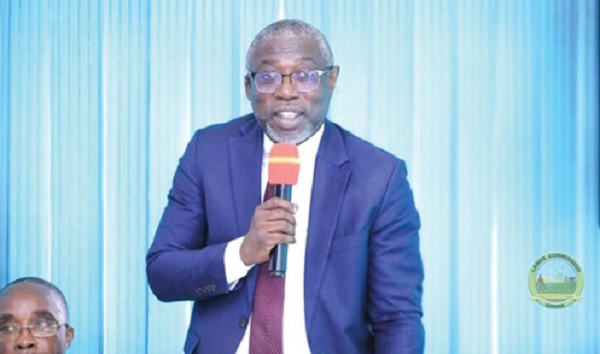
…Ghana, others in the Global South to benefit
By Kizito CUDJOE
The Vatican has announced the launch of a high-level Commission of Experts to address the mounting sovereign debt crisis affecting Ghana and numerous other countries across the Southern Hemisphere.
The initiative, led by the Pontifical Academy of Social Sciences (PASS) in collaboration with Columbia University’s Initiative for Policy Dialogue (IPD), aims to develop reform proposals for the international financial system that would enable heavily indebted nations to achieve sustainable development.
Chaired by Nobel Prize-winning economist Professor Joseph E. Stiglitz, the Commission brings together a diverse group of economists, policymakers, legal experts, and civil society leaders.
Among its priorities is the publication of a “Jubilee Report,” which will assess current debt challenges and outline policy pathways for debt restructuring, development finance, and long-term economic resilience.
The Vatican’s intervention comes during the Church’s 2025 Jubilee Year, a period traditionally associated with justice and forgiveness. Pope Francis has made sovereign debt a central focus of this Jubilee, citing the urgent need for global financial reform.
Speaking at a 2024 conference co-hosted by PASS and IPD, the Pope called for an international debt resolution mechanism and urged creditors and borrowers to adopt an ethical code of conduct.
Ghana, along with more than 50 other low- and middle-income countries, is currently grappling with elevated debt servicing costs, worsened by the COVID-19 pandemic, global inflation, and rising interest rates.
According to the World Bank, developing countries spent a record US$1.4 trillion servicing debt in 2023, expenditures that increasingly exceed public investment in health, education, and climate resilience.
The Commission’s formation echoes the spirit of the early 2000s Jubilee movement, which achieved partial debt relief under the HIPC initiative but failed to reform the broader financial architecture.
In a related development, a civil society-led initiative dubbed the Africa International People’s Tribunal has been launched to highlight how policies promoted by the World Bank and International Monetary Fund (IMF) have contributed to debt-dependent development models, models that often prioritise repaying creditors over fostering inclusive growth.
Convened by the African Forum and Network on Debt and Development (AFRODAD), in partnership with the Malawi Economic Justice Network (MEJN), the Tribunal’s opening session drew attention to an alarming trend: Africa’s budget growth is being rapidly outpaced by the rise in general gross government debt, which has ballooned from US$375 billion in 2014 to over US$1.8 trillion in 2024.
This debt surge, under heavy policy direction from the IMF and World Bank, has turned Africa into the only region globally where debt is growing faster than Gross Domestic Product (GDP). In 2024, 46 percent of African countries had debt-to-GDP ratios exceeding 60 percent, nearly double the figure from 2013, which stood at 25 percent.
Adding to the continent’s financial vulnerability is the persistent rise in illicit financial flows (IFFs), which reached nearly US$90 billion in 2022. This staggering figure exceeds the official development assistance Africa receives, effectively making the continent a net creditor to the world, a bitter irony not lost on Tribunal participants.
AFRODAD’s Executive Director, Jason Rosario Braganza, did not mince words when he said: “After 80 years of engagement and existence… these two institutions have been responsible for an extreme level of infringement, potentially harming development,” during the opening session of the two-day hearing held in Lilongwe, Malawi.
Mr. Braganza argued that the policies of the IMF and World Bank have restricted African governments’ ability to create fiscal space, stalling meaningful economic and social transformation. “Their policies,” he said, “have led to regressive taxation that burdens citizens.”
He continued, “IMF and World Bank policies continue to divert resources away from social protection and welfare programs like education, health, food, and water, instead favouring tax incentives and holidays for foreign direct investment.”
He called for systematic reforms, stating that the current global debt architecture is simply not fit for purpose. “It does not serve African countries and often puts creditors ahead of the priorities of African citizens.”
Also speaking at the event, Rev. Innocent Chikopa, Vice Board Chairperson of MEJN, said the impacts of these policies are deeply felt across the continent, not just in national budgets, but in homes and communities.
He argued that “the policies promoted by the World Bank and the IMF have often exacerbated inequality, leaving many African countries among the most unequal in the world.”
“We call upon African governments to speak with one voice, pushing for a fairer global financial system that serves our people’s needs,” Mr. Chikopa added.
The post Vatican sets up global commission to tackle sovereign debt crisis appeared first on The Business & Financial Times.
Read Full Story
















Facebook
Twitter
Pinterest
Instagram
Google+
YouTube
LinkedIn
RSS